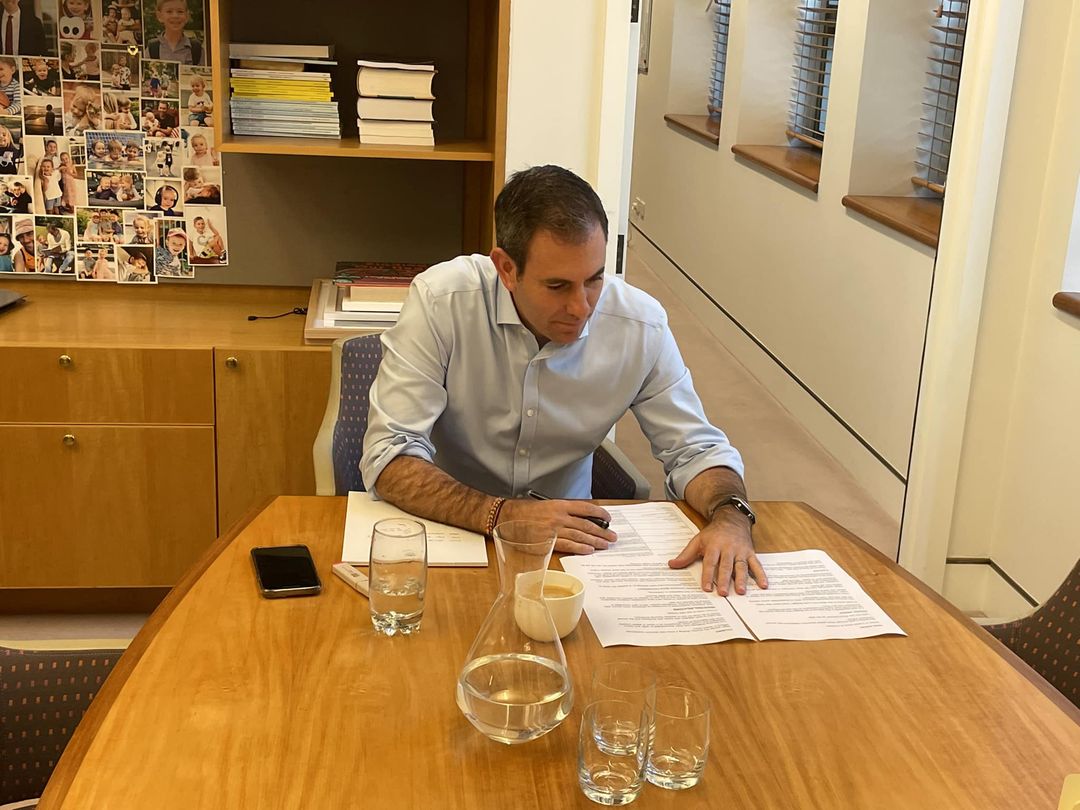
Jim Chalmers: the super rules designed to catch high-earners could hit public servants with defined benefits. Photo: Supplied.
Incoming superannuation tax laws aimed at high earners could potentially catch unsuspecting public servants on defined benefit pension schemes.
The Treasury Laws Amendment (Better Targeted Superannuation Concessions and Other Measures) Bill 2023, seeking to introduce a 30 per cent high-end super tax, is currently before parliament.
The proposed Division 296 tax reduces the concessional tax rates that apply to superannuation earnings on balances above $3 million and will apply from 1 July 2025 if legislated.
But since the bill’s introduction a year ago, public servants have raised numerous concerns about the government’s plans.
Those concerns are now peaking as the bill gets closer to being voted into law, with the Treasury clarifying that the plan will include defined benefit recipients.
While most retirees could avoid the tax by withdrawing large sums from their super, public servants retiring on defined benefit super cannot.
The Australian Council of Public Sector Retiree Organisations (ACPSRO) says it amounts to an unfair treatment of defined-benefit pension recipients.
It insists that if the measure’s stated purpose is to ensure the better targeting of superannuation tax concessions, it is clear that benefit pensions are not subject to the tax concessions covered by the legislation.
“Having now studied the proposed regulations, our view is that Defined Benefit pensions are not in receipt of the several concessions that apply to funds accumulated under the Superannuation Guarantee arrangements and therefore should not be included within the ambit of the proposed legislation,” ACPSRO said in a recently issued statement.
“Superannuation Guarantee pensioners can readily escape Div 296 tax by moving some of their Superannuation Guarantee assets to other places.
“Defined Benefit pensioners are unable to access any of the virtual assets ascribed to them in the Div 296 regulations and are unable to take any actions to limit the impact of any Div 296 tax which may be applied.
“In retirement mode, the earnings of the first $1.9 million of Superannuation Guarantee assets are tax exempt for a Superannuation Guarantee pensioner.
“They are excluded from the Superannuation Guarantee pensioner’s tax assessment. Every cent of a Defined Benefit pension contributes to a defined benefit pensioner’s tax assessment.
“Earnings from Superannuation Guarantee assets between $1.9 million and $3.0 million will continue to be taxed at only 15 per cent and will continue not to be added to any personal income tax assessment.
“A Defined Benefit pension, on the other hand, which is assessed under the proposed regulations to be derived from a fund valued towards the top of this range, is likely to have the marginal income taxed at the top marginal rate of 45 per cent.
“Earnings from Superannuation Guarantee assets in excess of $3.0 million will attract a Div 296 loading of 15 per cent, taking the marginal tax rate to 30 per cent.
“Defined Benefit pensioners who are assessed to incur the Div 296 loading of 15 per cent will have that loading applied on top of the 45 per cent marginal rate they will almost certainly be facing already.
“While there are tax exempt elements to some Defined Benefit income streams, these elements represent the return of a member’s after tax contributions to the fund during the accumulation phase and do not represent concessional tax arrangements of the kind currently provided by the Superannuation Guarantee arrangements.”
Defined Benefits super schemes ended in 2004, but many public servants remain entitled to receive their set pensions for life.
Judges aren’t happy about the proposed new laws either, as they are currently entitled to 60 per cent of their former salary in retirement.
The president of the Australian Judicial Officers Association (AJOA), Justice Michael Walton, expressed the judiciary’s uneasiness in a submission to the parliamentary committee scrutinising the bill.
“The AJOA has profound concerns about the application of Div 296 tax to the statutory pension schemes for Commonwealth and Territory judges and opposes the proposed amendments,” he wrote.
“It is understandable that the aim of the draft bills is to raise revenue and, to that end, intends to hit as wide a target as possible. However, consideration must be given to the role of judges in our system of democracy and the rationale for all legislatures having enacted legislation providing for non-contributory pensions for judges.
“There is significant doubt as to whether the proposed application of Div 296 tax to judges’ statutory pension entitlements is constitutionally valid.
“Even assuming its validity, the application of Div 296 tax, in this way, would cause institutional harm to the Commonwealth and Territory courts. The minor fiscal benefit to the Commonwealth cannot justify such erosion of Australia’s system of democracy.”
Original Article published by Chris Johnson on Riotact.



